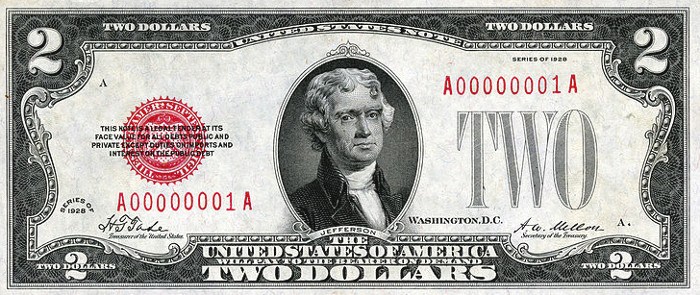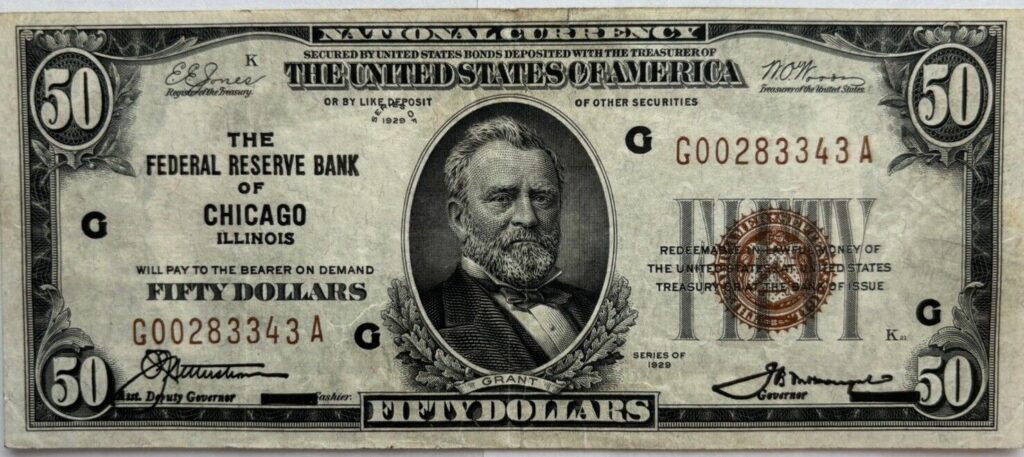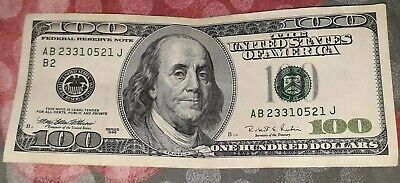Most people view their wallets as a simple place to store spending cash, but some of the bills sitting there might actually be worth far more than their face value.
Rare $2, $50, and $100 bills with unique serial numbers, printing errors, or historic significance are drawing attention from collectors and investors across the country.
If you’re lucky enough to find one of these in your wallet or stashed away in a drawer, it might be time to hold on—or cash in.
Rare $2 Bills That Could Be Worth Hundreds
While the $2 bill is still in circulation today, some older versions and unique variations can command a premium on the collector’s market.
1. 1928 Series $2 Bill – Red Seal
Issued during the Great Depression, this note features a red seal and is valued between $60 and $100 in circulated condition. Uncirculated versions can fetch up to $500, depending on quality.
🔗 More info on U.S. currency history – U.S. Bureau of Engraving and Printing

2. 1953 Red Seal $2 Bill
Another red-sealed note, these are easier to find and usually sell for $10–$25 in circulated condition, and up to $90 if uncirculated.
3. 1976 Bicentennial $2 Bill
Though not rare, some Bicentennial bills with special serial numbers or errors can bring in higher amounts than the face value.
4. 1995 $2 Star Note
Star notes, used to replace defective bills, have a star symbol at the end of the serial number. A 1995 $2 Star Note in uncirculated condition can be worth around $500.
Valuable $50 Bills with Collector Appeal
Modern $50 bills may seem ordinary, but older or misprinted ones are often prized.
1. 1929 Brown Seal $50 Bill
Issued during the National Bank Note era, this note has a distinctive brown seal. These notes can sell for $75–$100, depending on condition.

2. 1985 $50 Star Note
Uncirculated 1985 star notes can fetch up to $398, while circulated ones are typically valued between $75 and $85.
3. 1969B Federal Reserve Note
Bills from this era, especially with a green seal, may be valued at $100 to $250 in circulated form, and up to $450 if uncirculated.
$100 Bills Worth More Than Their Face Value
Older $100 bills have recently surged in popularity with collectors, thanks to both nostalgia and design changes.
1. Pre-1996 $100 Bills
These feature a smaller portrait of Benjamin Franklin and lack modern anti-counterfeit features. Collectors may pay $120–$135 or more for these bills.

2. $100 Star Notes
Just like with $2 and $50 bills, star notes are more valuable, especially if printed in small batches. Value varies widely, but rare issues can go for hundreds.
Unique Serial Number Bills
Serial numbers that are:
- Low (e.g., 00000001)
- Repeating (e.g., 12341234)
- Palindromes (e.g., 12344321)
are highly desirable. Some can fetch thousands of dollars, depending on condition and demand.
🔗 Learn About U.S. Currency and Star Notes – U.S. Currency Education Program
How To Check Your Bills
If you think you may have a valuable bill:
- Check the Serial Number – Look for stars, patterns, or low digits.
- Inspect the Seal Color and Series Year – Red or brown seals, and older years (pre-1980) are often more valuable.
- Examine for Printing Errors – Misprints, off-centering, or missing elements can increase value.
You can get professional appraisals at:
For buying/selling, check platforms like:
Final Thoughts
You don’t need a treasure map to find valuable currency—just take a closer look in your wallet. Whether it’s an old $2 red seal bill or a $100 star note, collectors are willing to pay big for rare paper money. With inflation on the rise and interest in collectibles growing, now may be the best time to cash in on these hidden gems.
This article has been carefully fact-checked by our editorial team to ensure accuracy and eliminate any misleading information. We are committed to maintaining the highest standards of integrity in our content.

Himanshu Sharma writes for Weekend Spy, focusing on recruitment, government schemes, and current affairs. He is dedicated to making complex information accessible to readers.
Himanshu enjoys playing chess, hiking, and trying new recipes, always seeking ways to combine his love for writing with his passion for exploration. Connect with Drop him an email at [email protected].







